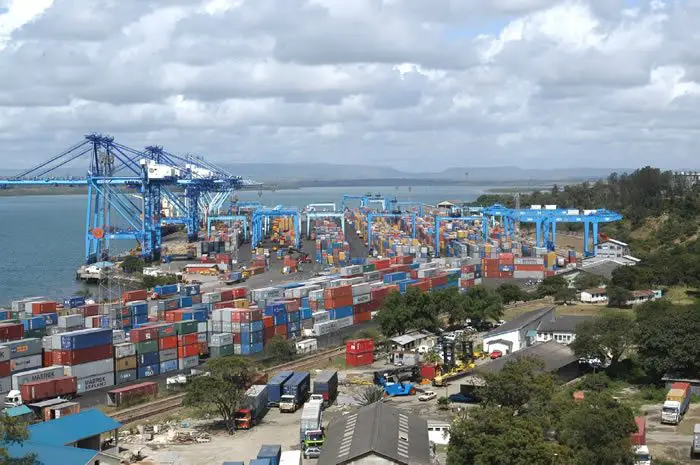Time efficiency is crucial to any port as it improves the average turnaround time but Sub-Saharan Africa is struggling with long delays in clearing cargo from its ports which costs it revenue running into millions of dollars hence imposing a negative economic impact. However, to remove itself from the list of countries struggling with long delays at the ports, Kenya has launched an online cargo clearance system.
The move is geared towards boosting operations at the port of Mombasa and the Jomo Kenyatta International Airport (JKIA). The Electronic Single Window System, also known as Kenya TradeNet System, is expected to make it easier and cheaper for traders to clear their goods in the east African country. With the system in place, the country hopes to progressively reduce the cargo dwell time to a maximum of three days at the port and at JKIA, easing the cost of doing business in the East African region.
Currently, it takes an average of seven days to clear cargo at the port of Mombasa. Officials say that the system will reduce the cost of shipping a container from Kenya to Uganda by 50% from the current US$3,300 to US$1,600. Containers going to Rwanda would cost US$3,300 from the previous US$5,000.
The system will give traders a single platform to lodge documents associated with cargo clearance. The information can then be shared to numerous agencies including the Kenya Revenue Authority (KRA), Kenya Plant Health Inspectorate Service (KEPHIS), Kenya Bureau of Standards and the Kenya Ports Authority (KPA).
The software integrates over 24 government agencies and provides various payments modes, including mobile money and 24 commercial banks.
Once fully operational, the system is expected to save the country between US$150m and US$250m in the next three years with savings expected to reach US$450m by 2020.
According to the Central Bank of Kenya’s economic survey 2014, the cargo handled at Mombasa Port increased by 1.8% to 22.31m tonnes last year. A huge part of this cargo goes to the East African Community (EAC) nations mainly Rwanda, Uganda and South Sudan, with the rest remaining in Kenya.
Writing in the forward of a World Bank study titled “Why does cargo spend weeks in sub-Saharan African ports? “ Shantayanan Devarajan, the World Bank’s chief economist for the Africa region says that long dwell times are in the interest of certain players in the system and that dealing with the proximate cause of the problem, such as the apparent lack of berths in African ports, is unlikely to trigger a solution. He point out the case of importers who use the ports to store their goods citing Douala, Cameroon where storage in the port is the cheapest option for up to 22 days.
He adds that customs brokers have little incentive to move the goods because they can pass on the costs of delay to the importers. Worse still, when the domestic market is a monopoly, the downstream producer has an incentive to keep the cargo dwell times long as a way of deterring entry of other producers.
The study shows that discretionary behaviors increase system inefficiencies and raise total logistics costs. “In most ports in sub-Saharan Africa, the interests of controlling agencies, port authorities, private terminal operators, logistics operators (freight forwarders) and large shippers collude at the expense of consumers,” the study says.
It is imperative to note that alleviating these constraints will go a long way in ensuring the continent achieves economic prosperity.

Leave a Reply